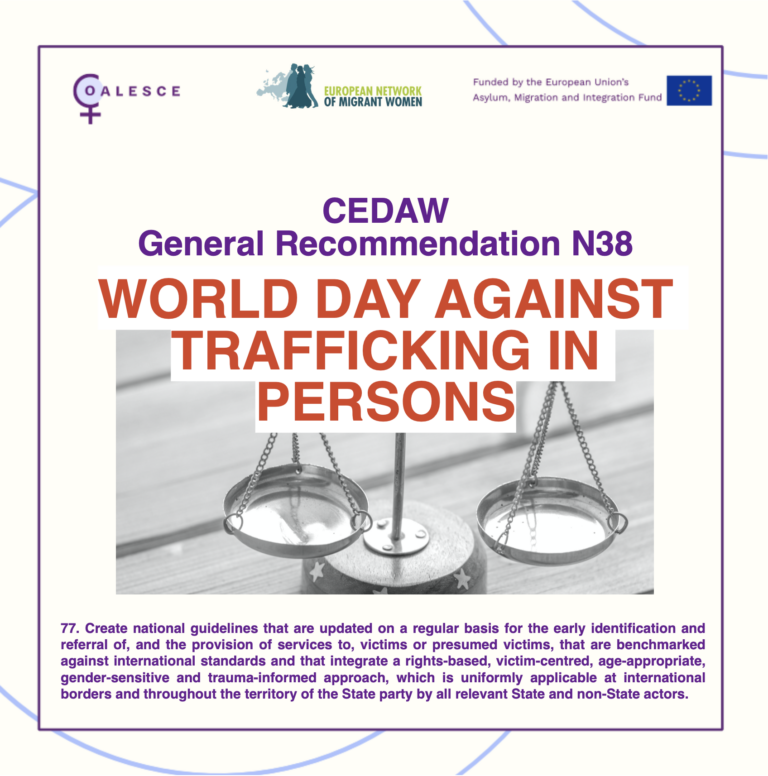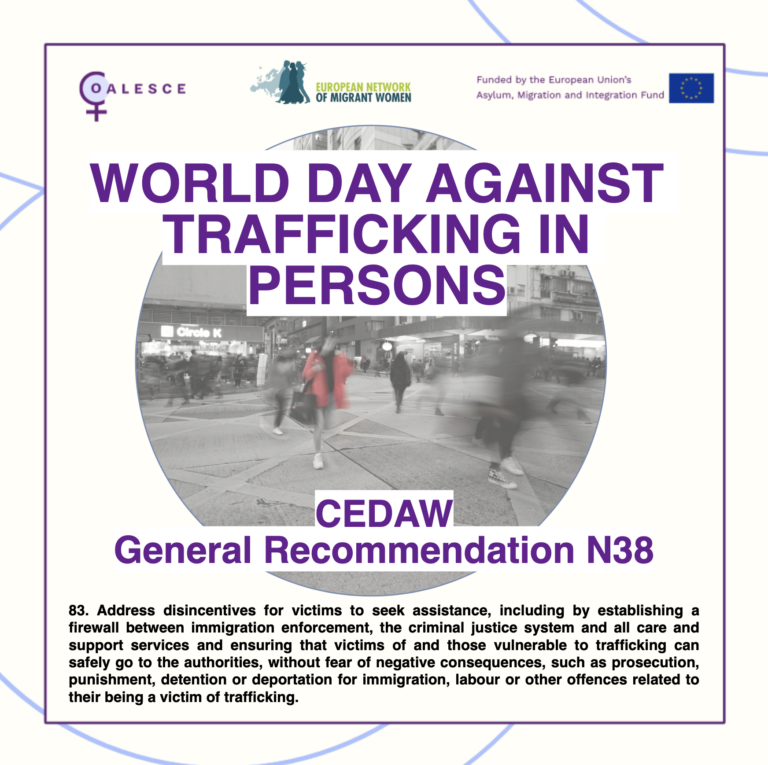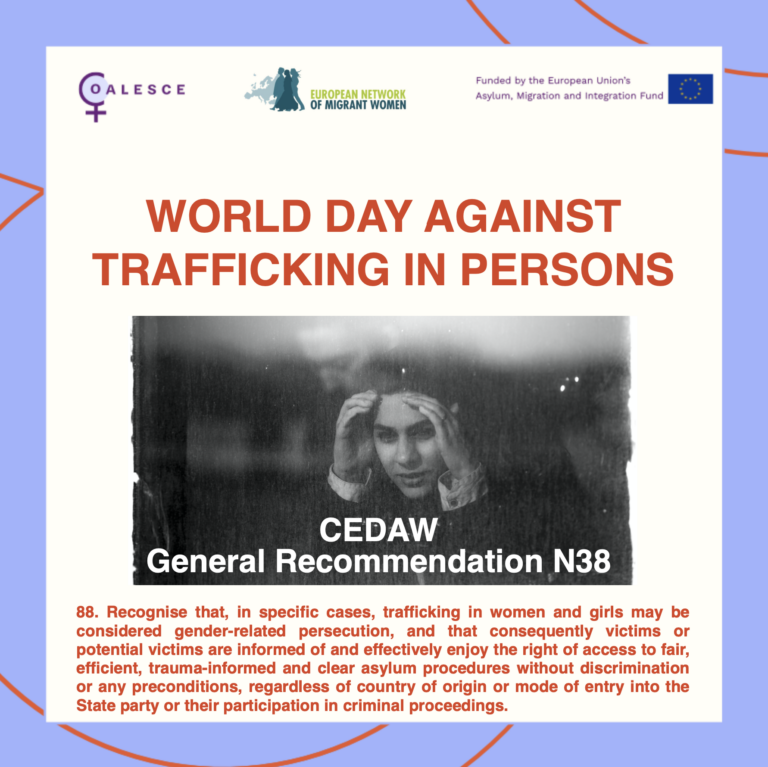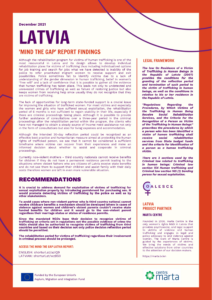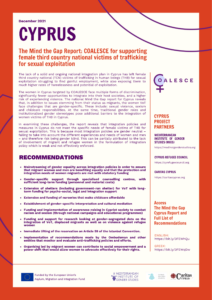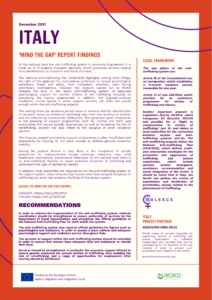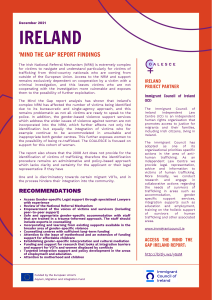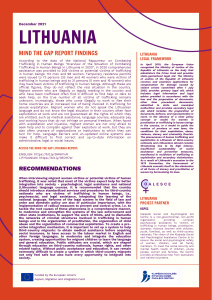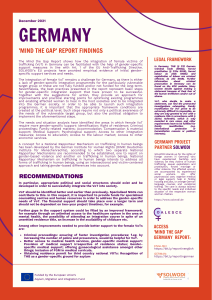European Network of Migrant Women
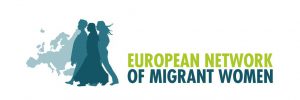
COALESCE: GENDER SPECIFIC PSYCHO-SOCIAL, LEGAL AND ECONOMIC SUPPORT AND ASSISTANCE TO MIGRANT WOMEN VICTIMS OF TRAFFICKING FOR SEXUAL EXPLOITATION
In 2021-2022, European Network of Migrant Women took part in a project titled COALESCE, funded by the AMIF Fund and led by the Mediterranean Institute of Gender Studies in Cyprus, in partnership with Immigrant Council of Ireland, Caritas and Refugee Council of Cyprus, Solwodi in Germany, Klaipeda Centre of Lithuania, Iroko Onlus of Italy and Marta Centre of Latvia.
The objective of COALESCE was to provide support to the female migrant victims of trafficking in human beings for sexual exploitation in Europe by providing gender-specific psycho-social, legal and economic support and assistance to third-country national women victims of sex trafficking, and to develop synergies and complementarities in facilitating needs identification, assistance and support, and improve transnational cooperation among front line professionals and practitioners.
The project aimed to place the voices and authentic opinions of trafficked women at the centre of its implementation.
PROJECT RESULTS
MIND THE GAP COUNTRY REPORTS
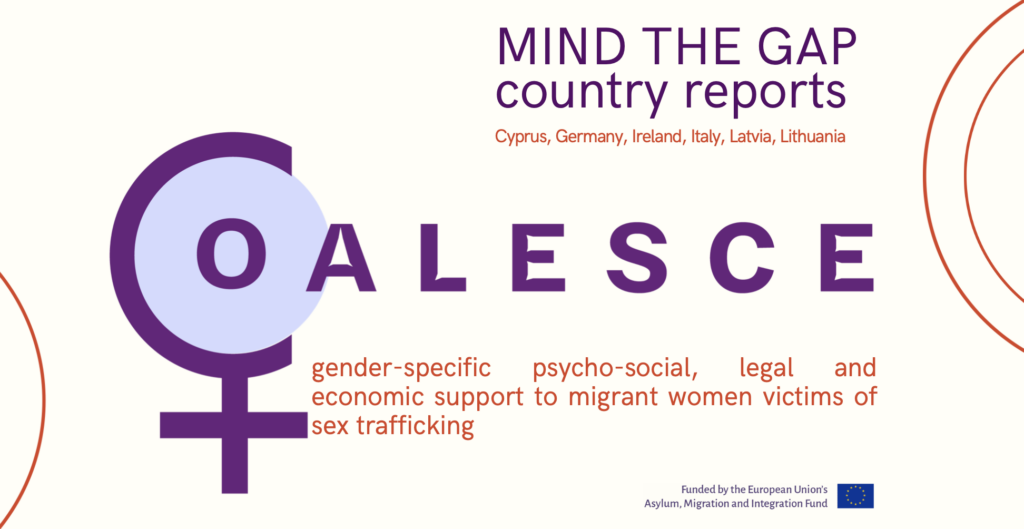
WORLD DAY AGAINST TRAFFICKING IN PERSONS. RECALLING CEDAW CONVENTION ARTICLE 6 AND ITS GENERAL RECOMMENDATION N 38
30 JULY 2021
Article 6 of the Convention on the Elimination of All Forms of Discrimination against Women (CEDAW) sets out States parties’ legal obligation to “take all appropriate measures, including legislation, to suppress all forms of traffic in women and exploitation of prostitution of women”.
Despite the many existing anti-trafficking legal and policy frameworks at the national, regional and international levels, females continue to comprise the majority of detected victims of trafficking across the world and perpetrators enjoy widespread impunity.
In November 2020, the CEDAW Committee published General Recommendation 38 on trafficking in women and girls in the context of global migration. This General Recommendation affirms as a key priority of States, both individually and collectively, to prevent women and girls from exposure to risk of being trafficked.
As a migrant women-led Network, the whole text of the GR 38 is crucial for us but, today in the context of the COALESCE Project, we would like to highlight the following four recommendations concerning profiting and assisting female migrant victims of trafficking
Full Text of General Recommendation N38
Flyers: General Recommendations Focus on Migrant Victims N38
ROUNDTABLE DISCUSSION
18 OCTOBER 2021
Access to information & support for women victims of trafficking for sexual exploitation
On October 18th, to mark the EU Anti Trafficking Day, the COALESCE partnership held a Virtual Roundtable on gender-specific support services for Women victims of trafficking for sexual exploitation. Our project partners from Cyprus, Ireland, Germany, Italy, Latvia and Lituania held an online conversation with Gunilla Ekberg, international human rights lawyer and researcher, on the topic of access to information and how the latter is crucial for the holistic support of women who are victims of trafficking for sexual exploitation.
Watch the record of the round-table below
Gender-Specific Integration Model (GeSIM)
NOVEMBER 2021
Guidebook for practitioners working with women victims of human trafficking on gender-specific integration
In order to effectively implement integration programmes for third country national women victims of trafficking, victim service providers need to integrate gender as well as cultural sensitivity into their everyday work. Produced by the COALSCE partners, based on the outcomes of the EU-funded ASSIST project, the Mind the Gaps Reports of the COALSCE project, best practice templates from the COALESCE partners, and the project countable discussion help in June 2021, this guidebook is a step towards strengthening victim support service providers and your individual capacity as practitioner in taking gender-specific approaches and setting up gender-specific support programmes for women victims of trafficking.
Guidebook for Practitioners
INTERNATIONAL MIGRANTS' DAY: COALESCE POLICY BRIEF ON THE NEEDS OF FEMALE MIGRANT VICTIMS OF TRAFFICKING FOR SEXUAL EXPLOITATION IN EUROPE
18 DECEMBER 2021
To mark the International Migrants Day we are publishing the Policy Brief of the COALESCE project, dedicated to supporting the female migrant victims of trafficking for sexual exploitation in Europe.
This brief highlights the gaps in identification, access to services, including health, maternity and child care, psycho-social support, and long-term economic integration of female victims, despite the fact the EU has a plethora of legal tools to support the victims and trafficking for sexual exploitation is clearly recognised at both EU and international level as a gendered crime.
This Policy Brief is based on the results of the “MIND THE GAP” country reports from Cyprus, Germany, Italy, Ireland, Lithuania and Latvia, now complimented by the Country Policy Briefs too.
To access Country Policy Briefs in PDF format click on the links below:
EU Policy Brief
Cyprus
Ireland
Italy
Germany
Latvia
Lithuania
COALESCE SURVIVOR VOICES: IN TIME YOU WILL UNDERSTAND

30 JULY 2022
In the frames of the COALESCE project, and to mark World Antitrafficking Day 2022, we are sharing “In Time You Will Understand” by Armandine Love Saadio, supported by our partner organisation Cyprus Refugee Council within the COALESCE project. Armandine Love Saadio documents the life of a survivor of sexual exploitation and abuse, Rita, immersing the reader in the emotional turmoil of her journey, from child to woman.
In this excerpt from her yet unpublished novel, we watch Rita struggle with being forced to abandon her dreams, which were but an illusion, paid for by Uncle Yves, a deposit on a life of submission. This testimony serves as a preamble to Rita’s life before trafficking: the abandoment of her studies due to a forced marriage, her father’s incestuous acts and grooming, and an abrupt end to her personal dreams and aspirations. These are some of the elements that are common in the lives of sexually exploited women, unknown to the wider public.
In Time You will Understand
COALECSE FINAL CONFERENCE
18 OCTOBER 2022
Supporting Migrant Women Victims of Trafficking for Sexual Exploitation in Europe
On October 18th 2022, to mark the EU Anti Trafficking Day, the COALESCE partnership held a seminar in Brussel’s Press Club Europe. This event event brought together international experts of the COALESCE project, along with survivors, to share the outcomes and results of the project and to discuss the needs of and solutions for the migrant women victims of this grave and complex crime.
Watch the record of the conference below

TRAFFICKING IN MIGRANT WOMEN FOR EXPLOITATION IN PROSTITUTION: ROOT CAUSES, IMPACT ON VICTIMS, BEST PRACTICES AND RECOMMENDATIONS
Nearly 20 years ago, in its Action Plan to Combat Trafficking, Organisation for Security and Co- operation in Europe (OSCE) concluded that the ‘root causes of trafficking in human beings, occurring both in countries of origin and destination, remain insufficiently tackled’. Demand for sexual exploitation was identified as one of such root causes, along with the widespread sex discrimination, violence against women, racial and economic inequalities, conflicts and wars, among others. (OSCE, PC.DEC/557).
In the European Union, since 2009, both human trafficking and sexual exploitation of women and children are explicitly considered in the Lisbon Treaty extending the Union’s competence for the harmonisation of criminal law. On this basis, in 2011, European Union adopted a directive on preventing and combatting trafficking which clearly recognised trafficking in women for the purpose of exploitation in prostitution as a gendered crime – qualitatively different from other forms of trafficking in its root causes and its impact on victims – that required solutions grounded in a comprehensive understanding of this crime as a form of violence against women. The directive also recognised that addressing the demand was a measure that states must be encouraged to take for the effective eradication of trafficking in human beings.
Coalesce Policy Brief II
Coalesce External Evaluation

